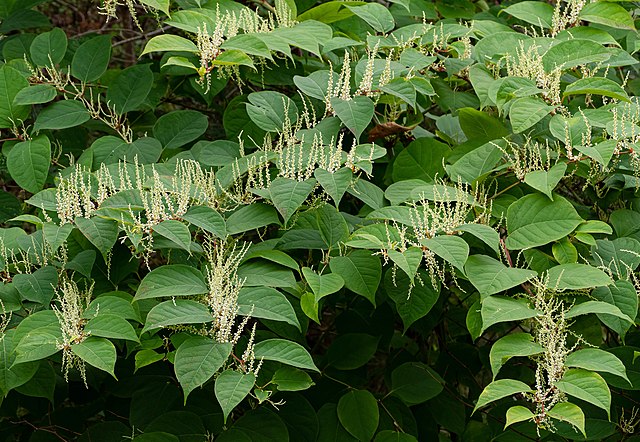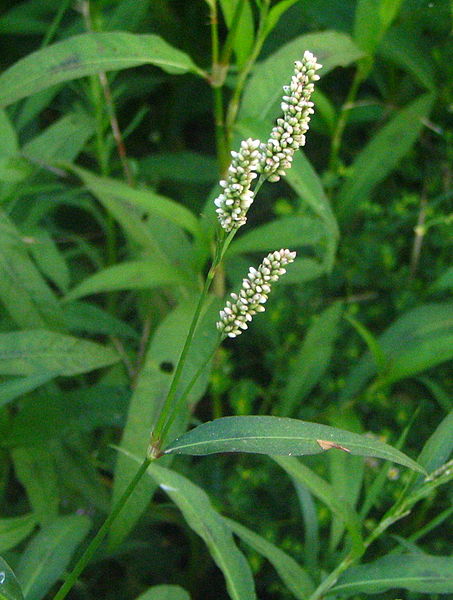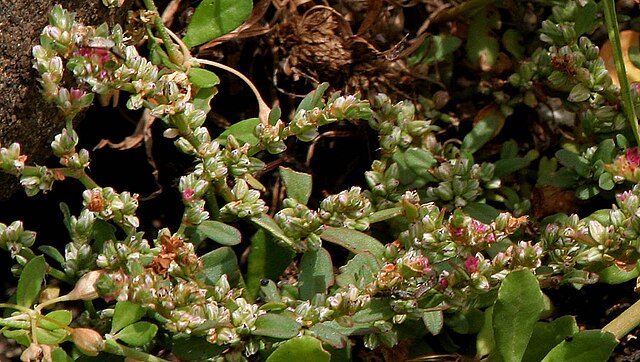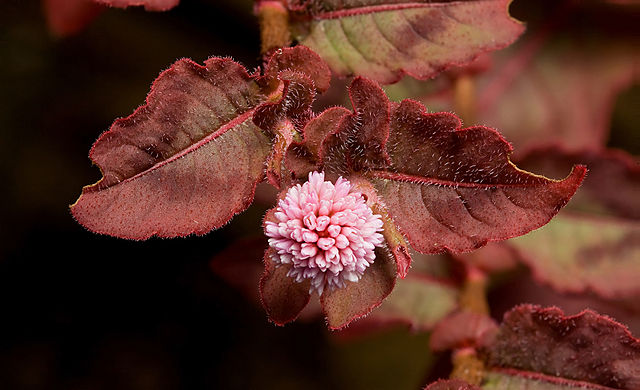Reynoutria japonica, synonyms Fallopia japonica and Polygonum cuspidatum, is a species of herbaceous perennial plant in the knotweed and buckwheat family Polygonaceae. Common names include Japanese knotweed and Asian knotweed. It is native to East Asia in Japan, China and Korea. In North America and Europe, the species has successfully established itself in numerous habitats, and is classified as a pest and invasive species in several countries. The plant is popular with beekeepers, and its young stems are edible, making it an increasingly popular foraged vegetable with a flavour described as lemony rhubarb.
Reynoutria japonica
Dead stems from previous years remain in place as new growth appears.
A hedgerow made up of roses and Japanese knotweed
Erect inflorescence
The Polygonaceae are a family of flowering plants known informally as the knotweed family or smartweed—buckwheat family in the United States. The name is based on the genus Polygonum, and was first used by Antoine Laurent de Jussieu in 1789 in his book, Genera Plantarum. The name may refer to the many swollen nodes the stems of some species have, being derived from Greek [poly meaning 'many' and gony meaning 'knee' or 'joint']. Alternatively, it may have a different origin, meaning 'many seeds'.
Polygonaceae
Polygonum plebeium or small knotweed
Ochrea of Persicaria maculosa
Persicaria capitata or pink knotweed








